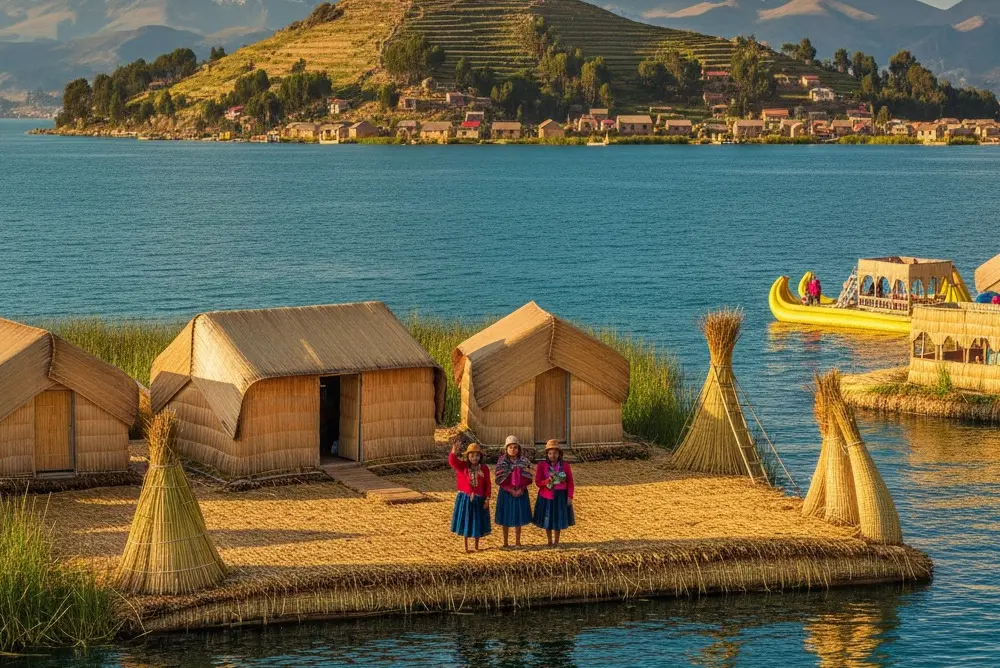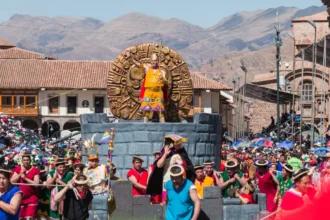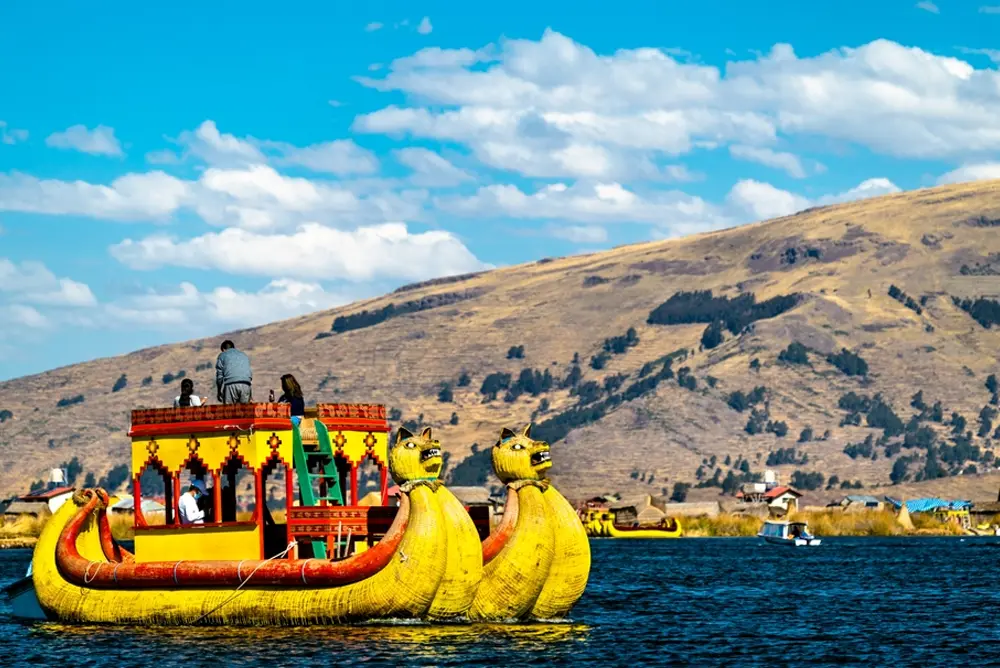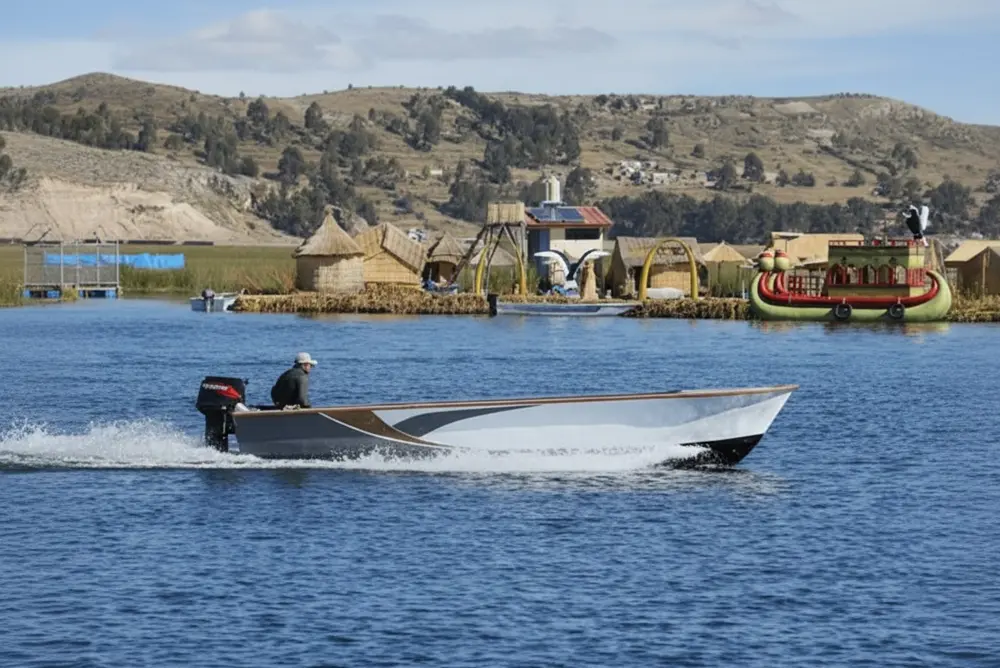At 3,812 meters above sea level, Lake Titicaca is the world’s highest navigable lake and one of South America’s most fascinating destinations. Shared between Peru and Bolivia, it is steeped in myths, traditions, and stunning scenery.
For travelers seeking both cultural immersion and natural beauty, Lake Titicaca offers unique experiences, from the man-made reed islands of the Uros to the timeless way of life on Taquile and Amantani
The Significance of Lake Titicaca
Lake Titicaca is considered the birthplace of the Inca civilization. According to legend, the first Inca king, Manco Cápac, and his sister-wife Mama Ocllo emerged from its waters to establish Cusco.
Beyond mythology, the lake has been vital for centuries, sustaining communities with fishing, agriculture, and trade. Its vast expanse and serene blue waters create a spiritual atmosphere that continues to inspire visitors.
Uros Floating Islands: A Unique Way of Life
The Uros people live on floating islands made entirely of totora reeds. These artificial islands are constantly rebuilt as the reeds decay, a process that demonstrates resilience and innovation.
Visitors can explore the islands, learn about traditional fishing techniques, and even take a ride on reed boats. While tourism provides income, the Uros still preserve many ancestral customs, offering a glimpse into a culture unlike any other in the world.
Taquile Island: Tradition and Textiles
Taquile Island is renowned for its handwoven textiles, recognized by UNESCO as part of the world’s intangible cultural heritage. Men traditionally knit while women spin wool, continuing practices passed down for generations.
Life on Taquile is governed by communal values and centuries-old traditions. Travelers can enjoy breathtaking hikes with panoramic lake views, followed by a hearty Andean meal prepared with local ingredients such as quinoa and trout.
Amantani: Homestays and Andean Spirituality
Amantani Island offers a deeper cultural experience through community-based tourism. Many families open their homes to visitors, providing authentic homestays. This allows travelers to share meals, participate in daily chores, and experience true Andean hospitality.
The island is also known for its sacred temples dedicated to Pachatata (Father Earth) and Pachamama (Mother Earth). A sunset hike to these temples offers unforgettable views and a spiritual connection with the Andean world.
Adventure and Outdoor Activities
Beyond cultural encounters, Lake Titicaca provides opportunities for adventure. Kayaking, boat tours, and hiking trails allow travelers to enjoy its natural beauty from different perspectives.
Birdwatching is another highlight, as the lake is home to diverse species including flamingos, grebes, and herons. Eco-tourism initiatives are growing, encouraging sustainable exploration of this fragile environment.
Planning Your Trip to Lake Titicaca
Most visitors access the lake through Puno, Peru, which serves as the main hub for tours. Half-day, full-day, and multi-day excursions are available depending on your interests.
Travelers should prepare for high altitude by acclimatizing in Cusco or Arequipa beforehand. Packing essentials include warm layers, sunscreen, and cash for local markets. For 2025, community-based tours are increasingly popular, ensuring that tourism benefits local families directly.
.










